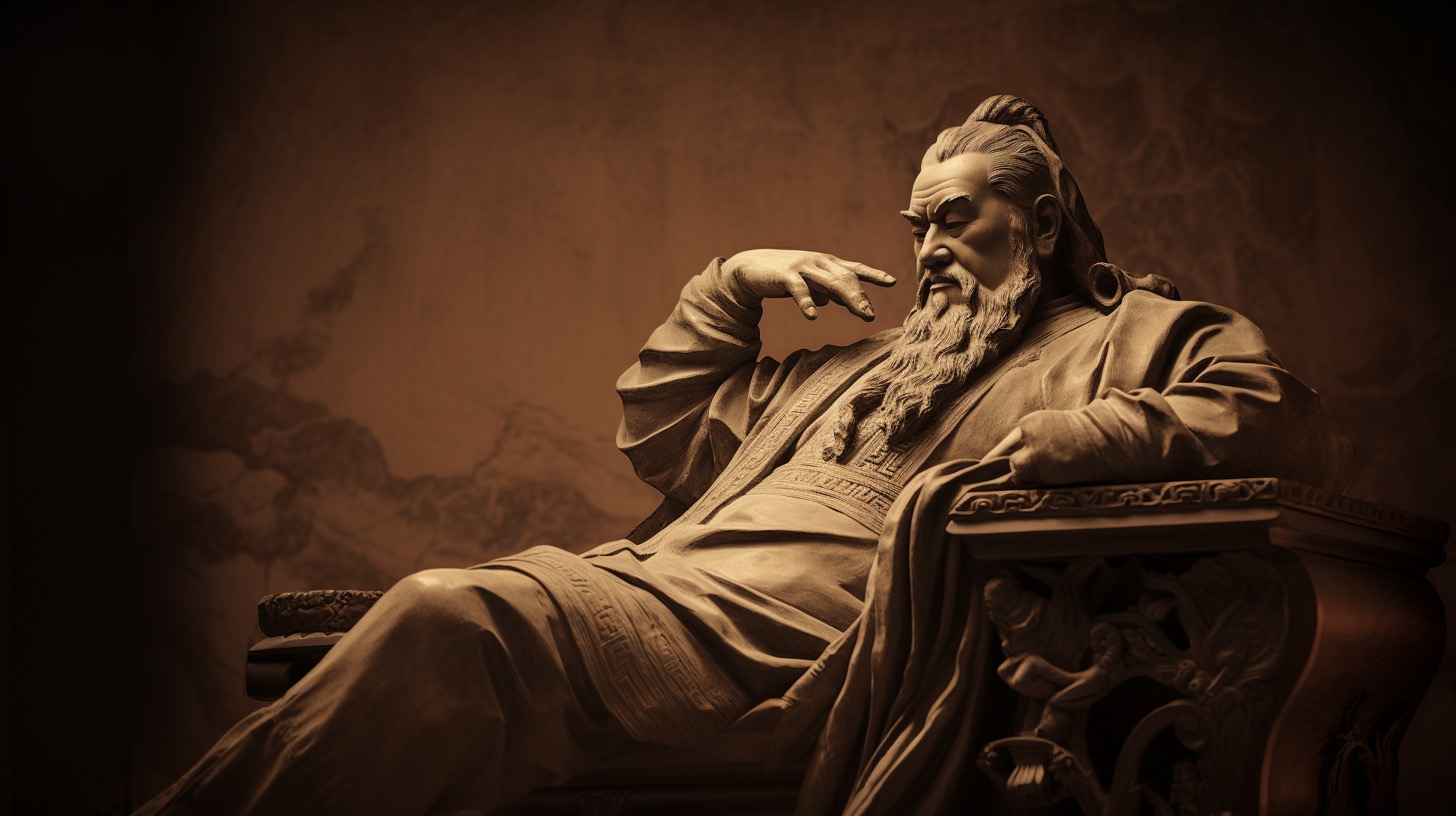
Thoreau and Confucius on True Knowledge
Attributed to Confucius by Henry David Thoreau in "Economy" from Walden, collected in Thoreau: Political Writings(1996), pp. 27-28. (This quote — "To know that we know what we know, and that we do not know what we do not know, that is true knowledge." — is often attributed to Nicholas Copernicus, but I've been unable to find a citation bearing this out.)To know that we know what we know, and that we do not know what we do not know, that is true knowledge.
Attributed to Confucius by Henry David Thoreau
I have lived some thirty years on this planet, and I have yet to hear the first syllable of valuable or even earnest advice from my seniors. They have told me nothing, and probably cannot tell me any thing, to the purpose. Here is life, an experiment to a great extent untried by me; but it does not avail me that they have tried it. If I have any experience which I think valuable, I am sure to reflect that this my Mentors said nothing about.
One farmer says to me, “You cannot live on vegetable food solely, for it furnishes nothing to make bones with”; and so he religiously devotes a part of his day to supplying his system with the raw material of bones; walking all the while he talks behind his oxen, which, with vegetable-made bones, jerk him and his lumbering plough along in spite of every obstacle. Some things are really necessaries of life in some circles, the most helpless and diseased, which in others are luxuries merely, and in others still are entirely
unknown.
The whole ground of human life seems to some to have been gone over by their predecessors, both the heights and the valleys, and all things to have been cared for. According to Evelyn, “the wise Solomon prescribed ordinances for the very distances of trees; and the roman praetors have decided how often you may go into your neighbor’s land to gather the acorns which fall on it without trespass, and what share belongs to that neighbor.” Hippocrates has even left directions how we should cut our nails; that is, even with the ends of the fingers, neither shorter nor longer. Undoubtedly the very tedium and ennui which presume to have exhausted the variety and the joys of life are as old as Adam. But man’s capacities have never been measured; for are we to judge of what he can do by any precedents, so little has been tried. Whatever have been thy failures hitherto, “be not afflicted, my child, for who shall assign
to thee what thou hast left undone?”
We might try our lives by a thousand simple tests; as, for instance, that the same sun which ripens my beans illumines at once a system of earths like ours. If I had remembered this it would have prevented some mistakes. This was not the light in which I hoed them. The stars are the apexes of what wonderful triangles! What distant and different beings in the various mansions of the universe are contemplating the same one at the same moment! Nature and human life are as various as our several constitutions. Who shall say what prospect life offers to another? Could a greater miracle take place than for us to look through each other’s eyes for an instant? We should live in all the ages of the world in an hour; ay, in all the worlds of the ages. History, Poetry, Mythology! — I know of no reading of another’s experience so startling and informing as this would be.
The greater part of what my neighbors call good I believe in my soul to be bad, and if I repent of any thing, it is very likely to be my good behavior. What demon possessed me that I behaved so well? You may say the wisest thing you can old man, you who have lived seventy years, not without honor of a kind, — I hear an irresistible voice which invites me away from all that. One generation abandons the enterprises of another like stranded vessels.
I think that we may safely trust a good deal more than we do. We may waive just so much care of ourselves as we honestly bestow elsewhere. Nature is as well adapted to our weakness as to our strength. The incessant anxiety and strain of some is a well nigh incurable form of disease. We are made to exaggerate the importance of what work we do; and yet how much is not done by us! or, what if we had been taken sick? How vigilant we are! determined not to live by faith if we can avoid it; all the day long on the alert, at night we unwillingly say our prayers and commit ourselves to uncertainties. So thoroughly and sincerely are we compelled to live, reverencing our life, and denying the possibility of change. This is the only way, we say; but there are as many ways as there can be drawn radii from one centre. All change is a miracle to contemplate; but it is a miracle which is taking place every instant. Confucius said, “To know that we know what we know, and that we do not know what we do not know, that is true knowledge.”